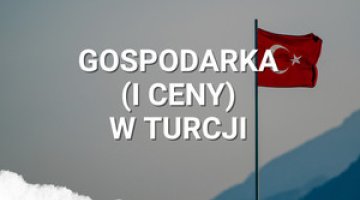Turkey: a hunger strike in prison – the PKK’s political offensive
Since mid-September, a hunger strike has been conducted in several prisons in Turkey by about 700 prisoners; they are Kurds, who are demanding the right to defend themselves in court in their mother tongue, and that lawyers be admitted to speak to Abdullah Öcalan, the leader of the separatist Kurdistan Workers' Party (PKK), who is serving a life sentence and has been kept in solitary confinement by the government for over 15 months.The Turkish government, especially the Prime Minister Recep Tayyip Erdoğan, has hitherto reacted harshly, in attempts to deny the existence of the problem or downplay its importance, but on 5 November, in response to criticism both domestically and abroad (including a statement by the representative of the European Commission), and the PKK’s announcement that the protest will be expanded to 10,000 prisoners, the government signalled that it is ready to meet both demands.
Commentary
- The struggle by the Kurdish minority (10-20% of the population) for national rights is the Turkey’s most complex internal problem, and since the beginning of the armed struggle by the PKK in the 1980s, it has also posed the most serious threat to national security. After a period of relative stability and calm concerning the PKK problem in the first decade of this century, Kurdish separatist activity in Turkey has grown rapidly in 2011 (in connection with the ‘Arab Spring’ and the civil war in Syria, among other factors). Attacks on and clashes with Turkish security forces have taken place on a nearly daily basis, mainly in the south-east of the country.
- The PKK is also likely behind the organisation of the hunger strike, an action that should be considered a success for it. The prisoners’ hunger strike has proved an effective tool in attracting public attention at home and abroad, and has aroused more sympathy and support for the Kurdish cause (primarily in the West) than the armed struggle, which has been extremely intense over the last year. For the PKK, the hunger strike is also likely to become a political victory in its struggle for support from the Kurdish nationality in Turkey. As a result the separatists will probably strengthen their position, not only with regard to other Kurdish groups (as the PKK can now present itself as the only effective defender of Kurdish national rights), but also to the governing AKP – the only national party which has strong support in the south-east of the country.
- The government’s persistently tough stance towards the hunger strike is in line with the long-term political evolution of the AKP and its leader, Prime Minister Erdoğan; they have departed from the position of a reformist party with Islamic roots, open to ethnic and religious minorities, and are now turning towards Turkish nationalism and religious conservatism. This turn has been accompanied by accusations, increasingly frequently raised in Turkey, that Erdoğan has authoritarian aspirations and is suppressing freedom of speech (Turkey ranks 148th out of 173 countries in Reporters Without Borders’ press freedom ranking). This line is based on a desire to consolidate the ethnic Turkish electorate before the presidential elections scheduled for 2014 (in which Prime Minister Erdoğan will probably run), and drastically reduces the likelihood of a political solution to the Kurdish issue, which is becoming increasingly threatening (due to regional instability). Any conciliatory gestures the government makes – including in response to the hunger strike – will certainly be limited, and will not fundamentally change the situation.





